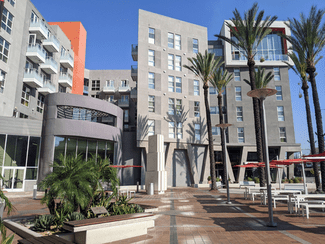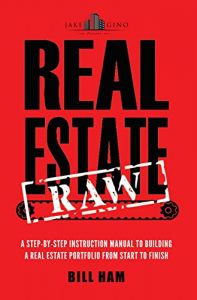Single Family vs. Multifamily Investing
By Bill Ham – Author of Real Estate Raw: A step-by-step instruction manual to building a real estate portfolio from start to finish

My answer- “houses make money when you steal them, and apartments make money by design”.
A single-family home was not built to be a long-term cash-flowing investment. Multifamily was. Houses will cash flow and can be a great investment if you get them cheap enough.
My opinion is that you should buy single-family homes for fix and flip (quick capital gains) and that you should hold multifamily for long-term cash flow and general appreciation. Houses are great for fixing up and selling at a profit but run into operational challenges when you start to hold a large portfolio. I have owned and operated many rental houses as well as apartments in my 20-year career, in real estate, and I found that I like both asset classes for different reasons.
It is my experience that you have a much greater “economy of scale” when dealing with apartments. This means that it’s easier to deal with/manage 20 apartments at one location than 20 individual units spread around the city.
The apartments will have the same plumbing, electrical, HVAC, and general systems. Each house will have a different physical setup. This causes higher repair costs because each repair will take a different set of parts and will take the maintenance person time to figure out each system in the house (electrical, plumbing, etc.), and what parts will be needed. This results in lots of trips to the local hardware store and back. Got the right part? No? Back to the store. Sound familiar?
In an apartment building, you can have supplies on hand as you will know what goes in each apartment. This (economy of scale) cuts down on operational costs and increases cash flow.
While multifamily is the way to go for a long-term hold portfolio, houses make more money per unit. The returns (ROI per unit) tend to be higher in single-family residential rental units than in apartment units.
The margins are lower in apartments (per unit) but there are a lot more “commas and zeros” when dealing with larger properties. For example, cash flow per unit in a large apartment complex may be $100-$200 a door. In a house, you typically get more cash flow than that. But if you get $100 a door and you have 2O or 50 doors, that can start to equal some interesting cash flow.
Appreciation is also a factor when considering economies of scale. For example, if a house you invested in goes up in value by 20% that’s good. If your 20-unit apartment complex appreciates by 20%…that’s great! More “commas and zeros” when dealing with larger properties.
This is why it is my opinion that you should use houses for quick capital gains and then invest that money into long-term hold investments in a multifamily asset.
About the Author


In 2005 I quit my job as a corporate pilot and went into real estate full-time. I had closed only one deal. A duplex. It was cash flowing about $300 a month. I started my entire real estate carrier with this one duplex and a life savings of $10,000. Not much.
My first 402 units were completed with some form of creative financing such as seller financing and master lease options. Over the years I built a large portfolio of real estate consisting mostly of apartments. I built a management company that operated the portfolio. At the peak that company was comprised of 16 employees and managed over 1000 units.
Over the years I had many successes and many failures. Some small and some big. I have made a lot of money and I have lost a lot of money. I have seen all phases of the market. The up cycles and the down. The good times and the bad. I have survived them all. Knowledge and skills are only passed on by those who survive.
The information I offer you on this site is my own. It has been tried and tested over a long career in the real estate business. Everything here has functionality that you can use, not untested theories. I have been successful with everything I teach. You can be too.















 Accessibility
Accessibility